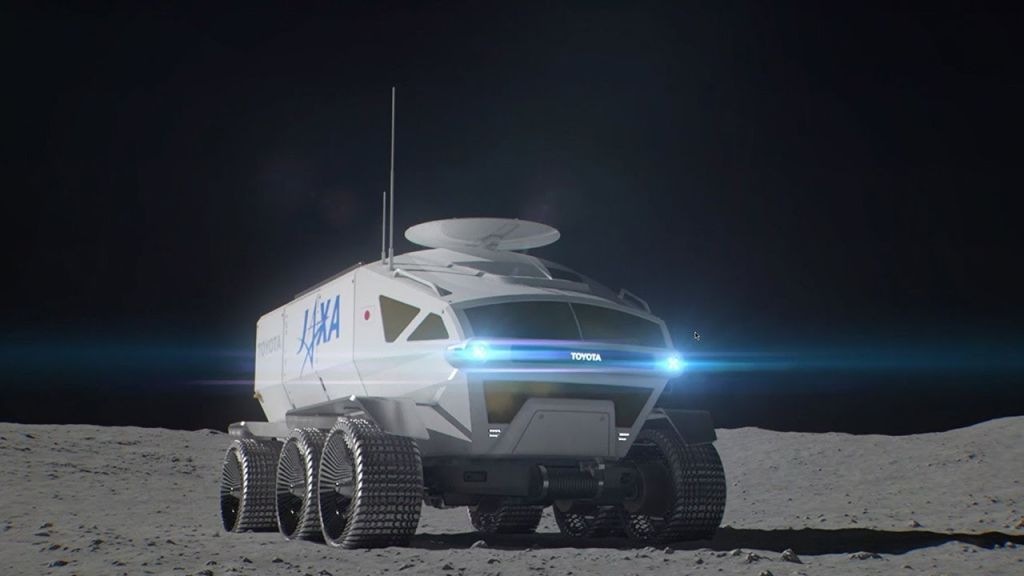Japan to Make History with First Non-American Moon Landing
In a landmark announcement, U.S. President Joe Biden revealed that a Japanese astronaut will become the first non-American to set foot on the lunar surface as part of NASA’s Artemis program.

The historic mission, expected to take place as early as 2028, marks a significant milestone in the longstanding space partnership between the United States and Japan.
The announcement came during a joint press conference with Japanese Prime Minister Fumio Kishida in Washington, D.C. on April 9, 2024.
Biden emphasized the strength of the U.S.-Japan relationship, highlighting their cooperation in space exploration as a testament to the alliance. “It’s the next chapter in the cosmic partnership between our two nations,” said NASA Administrator Bill Nelson.
Under the agreement signed by NASA and Japan’s Ministry of Education, Culture, Sports, Science and Technology, Japan will receive two astronaut flight opportunities to the lunar surface on future Artemis missions.
In return, Japan will contribute to the program by providing and operating a pressurized lunar rover, currently being developed by the Japan Aerospace Exploration Agency (JAXA) in collaboration with Toyota Motor Corp.

The lunar rover, dubbed the Lunar Cruiser, is expected to greatly enhance astronauts’ mobility and range on the Moon’s surface. By allowing astronauts to explore without the need for spacesuits, the rover will open up new possibilities for scientific research and discovery. The vehicle is slated to arrive on the Moon as early as 2031, with an operational lifespan of up to 10 years.

Japan’s science minister, Masahito Moriyama, expressed enthusiasm for the collaboration, stating that the country’s cooperation with the U.S. on lunar exploration “will begin to take concrete shape” as a result of the agreement. He pledged Japan’s continued efforts and support for the Artemis program.
The Artemis program aims to return humans to the Moon for the first time since the Apollo missions, which saw 12 American men walk on the lunar surface between 1969 and 1972.
This time, however, NASA is committed to sending a diverse group of astronauts, including women and people of color, to explore Earth’s celestial neighbor.
The inclusion of a Japanese astronaut in this groundbreaking mission is a testament to the strong ties between the U.S. and Japan, as well as their shared commitment to pushing the boundaries of space exploration.
User Comments:
- “As a lifelong space enthusiast, I’m thrilled to see Japan playing such a pivotal role in the return to the Moon. This collaboration between the U.S. and Japan is a shining example of what can be achieved when nations work together towards a common goal. I can’t wait to see a Japanese astronaut make history on the lunar surface!”
- “The development of the Lunar Cruiser by JAXA and Toyota is an incredible feat of engineering and innovation. Not only will it enhance the capabilities of astronauts on the Moon, but it also showcases Japan’s expertise in robotics and automotive technology. This partnership is a win-win for both countries and the advancement of space exploration.”
- “It’s about time we see more diversity in space exploration! Having a Japanese astronaut land on the Moon alongside NASA astronauts sends a powerful message about the importance of international collaboration and representation. This mission will undoubtedly inspire a new generation of space enthusiasts in Japan and around the world.”
- “As an American, I’m proud to see our country working hand in hand with Japan to push the boundaries of human spaceflight. This agreement demonstrates the strength of our alliance and our shared commitment to scientific discovery. I look forward to witnessing this historic moment and celebrating the achievements of both American and Japanese astronauts.”
- “The fact that Japan will be providing a lunar rover for the Artemis missions is a testament to their technological prowess and dedication to space exploration. This contribution will not only benefit the astronauts on the Moon but also pave the way for future international collaborations in space. It’s an exciting time for Japan and the global space community as a whole.”